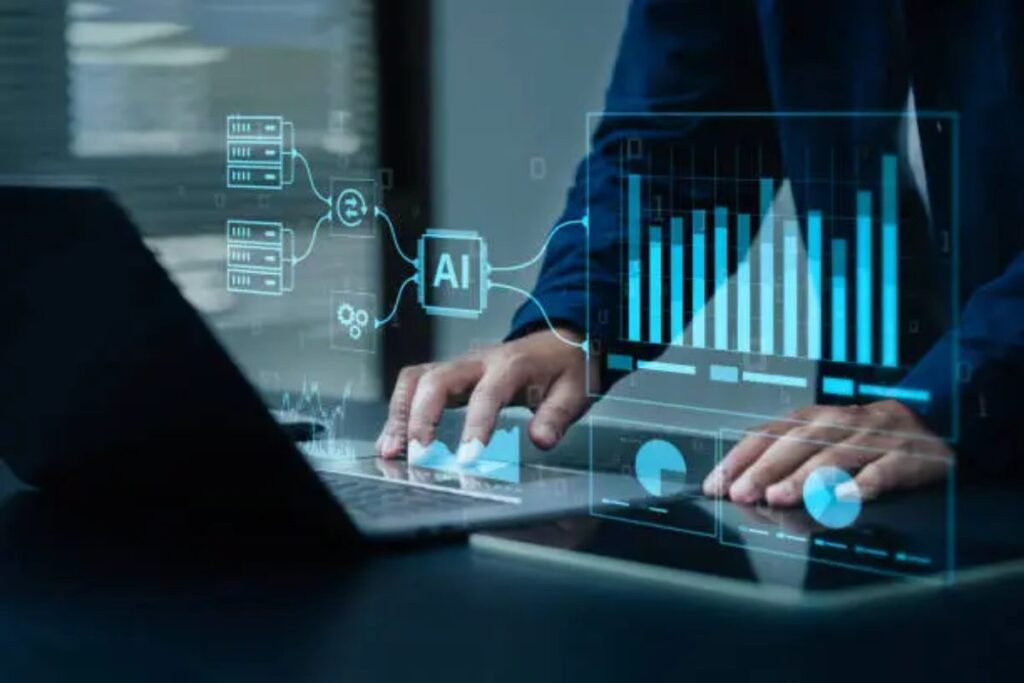Hello, fellow tech enthusiasts! If it seems like you hear about a new “revolutionary” AI tool almost daily, you’re not alone. The pace of innovation is breathtaking, nearly mind-boggling.
But which AI advancements are poised to go beyond mere innovation and fundamentally change the way industries operate? Starting in May 2025, we’ll witness the emergence of compelling trends that offer not just incremental improvements but entirely new ways to build, solve problems, and interact with the world.
Forget the crude AI of yesteryear. Today, we’re talking about complex systems that can learn, adapt, and even create in ways that were once the stuff of science fiction. Let’s take a look at some promising AI tools and concepts that are already starting to make waves, if not make waves, across various industries.
Hyper-Personalisation Engines: The AI That Knows You
We’ve all experienced basic personalisation: Netflix recommends shows, Amazon suggests products. But the new generation of AI-powered personalisation is on a whole new level. These systems analyse massive amounts of data about user behaviour, preferences, and contextual information in real time to deliver personalised experiences that feel unique to each person.
Industry Impact:
- E-commerce and Retail: Imagine online stores that dynamically change their design and product offerings based on browsing history, anticipated needs, and mood (determined by interaction patterns).
- Education: Adaptive learning platforms that adjust curriculum, teaching styles, and difficulty levels in real time to match each student’s learning pace and level of understanding. This means truly personalised education that meets diverse needs like never before.
- Health: Customised treatment plans based on your genetic makeup, lifestyle, and real-time health data obtained through wearables.
- Content Consumption: News, social media, and entertainment platforms that curate content so precisely it seems like they’re reading your mind.
It’s not just about better recommendations; it’s about creating deeper engagement, improving outcomes (in education and healthcare), and fostering unprecedented customer loyalty.
Generative AI Unleashed:From Text and Images

Generative AI has become popular, offering tools to write articles, create striking images, and even program. However, the trend goes far beyond these initial applications.
The rise of the AI co-creator: We’re seeing AI become an integral partner in the creative process.
- AI in design and engineering: Architects use AI to generate countless design options within certain constraints (materials, cost, environmental impact). Engineers use it to design more efficient components.
- AI in software development: AI tools can now write large snippets of code, debug them, and even suggest architectural improvements, significantly speeding up development cycles.
- And now, AI in music and audio is where things get really exciting for content creators, marketers, and even musicians. The arrival of sophisticated AI-powered music generation platforms marks a game-changer. For years, finding the right music for a video, podcast, or presentation involved complex licensing of existing tracks or hiring a composer, which could be expensive and time-consuming.
- Now, tools like Adobe Express AI Music Creator are democratizing audio creation. Imagine you need to create a specific atmosphere: an inspirational track for a product launch video, for example, or a relaxing ambient soundtrack for a meditation app. You can describe the genre, mood, tempo, and even specific instruments, and an AI music generator can create an original piece of music in minutes. It’s not just about creating generic background jingles; the quality and complexity of music is growing exponentially.
- Impact on content creators: YouTubers, podcasters, and independent filmmakers can now easily access custom, royalty-free soundtracks.
- Impact on game developers: Imagine dynamic soundtracks that adapt in real time to player actions and the game’s atmosphere, all generated by AI.
- Impact on marketing: Brands can quickly and cost-effectively create a unique audio brand and custom music for advertising campaigns.
- Impact on musicians: While some fear being replaced. Others see AI music generators as powerful tools for inspiration, quickly generating ideas, or creating backing tracks.
<h2>AI in Scientific Discovery: Accelerating Breakthroughs
The volume of data in scientific research is overwhelming for human researchers. AI is becoming an indispensable tool for hurrying scientific discovery.
Industry Impact:
- Drug discovery and development: AI algorithms can analyse molecular buildings and biological data to predict the functioning of new drugs, identify potential candidates, and even create new molecules from scratch, significantly reducing the time and cost of bringing new medicines to market.
- Materials science: AI is used to discover and develop new materials with specific possessions, such as lighter and stronger alloys for the aerospace industry or more efficient materials for solar panels.
- Climate change modelling: AI can process large amounts of weather data to create more accurate predictive models, helping us understand and mitigate the effects of climate change.
- Genomics and personalised medicine: AI can help analyse complex genomic data to understand diseases better and develop personalised treatment plans.
The Next Wave of Automation: Intelligent Robotics
We’re moving from basic robotic process automation (RPA) to knowledgeable systems that can sense. Reason, and act in complex and dynamic environments.
Industry Impact:
- Manufacturing: Cobots (collaborative robots) that can work safely alongside humans, adapting to new tasks and improving manufacturing efficiency and safety.
- Logistics and Supply Chain: Autonomous trucks, delivery drones, and innovative warehouse systems that optimise inventory management and order processing.
- Healthcare: AI-powered surgical robots that can perform procedures with greater precision and AI-powered diagnostic tools that can analyse medical images to detect diseases early.
- Agriculture: Precision farming using drones and AI-powered sensors to monitor crop health, optimise irrigation, and reduce pesticide use.
The Human Factor: Navigating the AI Revolution
As these powerful AI tools become increasingly integrated into our industries, it’s critical to remember the human element. The goal isn’t replacement, but empowerment. These tools are intended to augment human capabilities, automate labour-intensive tasks, and achieve new levels of creativity and efficiency. Principled issues. Data privacy, and the potential for job loss are crucial topics we must address as we navigate this AI-driven transformation. But the potential for positive change—to solve some of our biggest challenges and create a more efficient, personalised, and innovative world—is enormous.
Looking Ahead: An AI-Powered Future
The AI tools and trends we’ve mentioned aren’t just fads. They represent a fundamental shift in how we work, create, and solve problems. From hyper-personalised customer experiences to AI-powered soundtracks and accelerated scientific breakthroughs, the overall landscape of these technologies is profoundly transformative.
The key factors for individuals and businesses will be curiosity. Adaptability, and a willingness to explore how these tools can be used for the greater good. The future isn’t happening independently; with AI, we’re actively creating it—one algorithm, dataset, and brilliant idea at a time. Which AI tool will you learn next?

